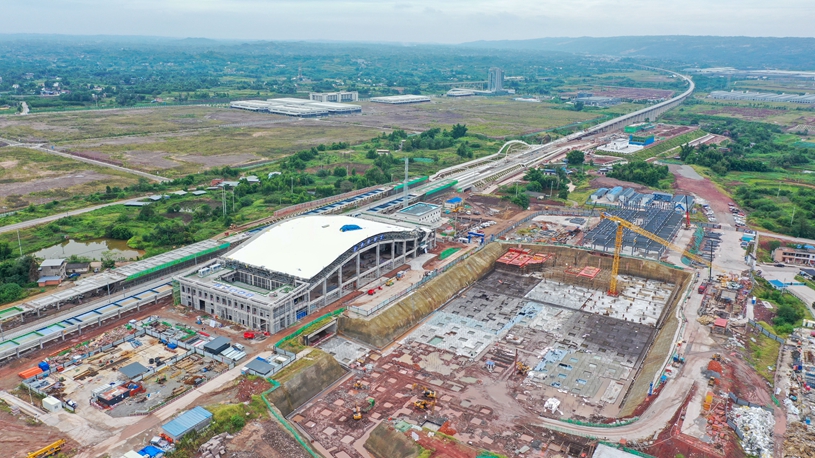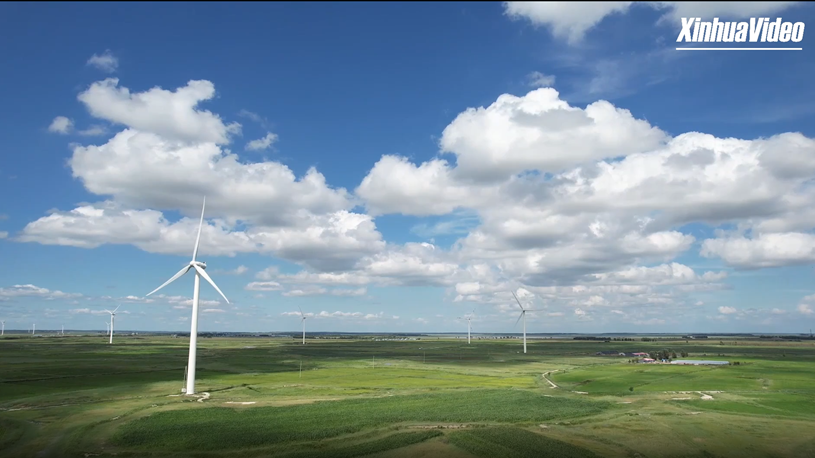
Aerial photo taken on July 20, 2020 shows Guanjin Park which has been created from an old river course in Wuyi County, north China's Hebei Province. (Xinhua/Li Xiaoguo)
SHIJIAZHUANG, Sept. 23 (Xinhua) -- Archaeologists have found the ruins of a Taoist temple dating back to the Song Dynasty (960-1279) in north China's Hebei Province, local authorities said Saturday.
The discovery was a result of a three-month excavation project in a village in Hebei's Wuyi County, jointly launched by Hebei Provincial Institute of Cultural Relics and Archaeology and local cultural relic protection departments.
The ruins cover an area of 400 square meters, and the findings included an earthen platform, a Taoist building, a water ditch, two water wells, seven ash pits and three stoves, said Guo Jiqiao, a researcher at the institute.
Unearthed artifacts included architectural components, daily necessities and production tools, with the majority of the items dating back to the Song Dynasty, Guo added.
Jia Guihu, director of the cultural relic protection department of Wuyi County, said this archaeological excavation holds significant value for studying the spread of ancient Taoist culture in China, as well as the folk culture, customs and traditions of the southern and central regions of Hebei Province. ■












